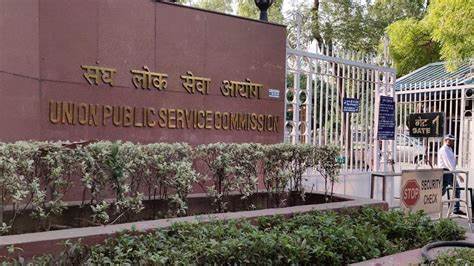INTRODUCTION :
The UPSC Geography syllabus covers physical, human, and economic aspects of geography, including geomorphology, climatology, population geography, regional development, and the geography of India. It also explores environmental issues, geopolitical dynamics, and the evolution of geographical thought, emphasizing interdisciplinary understanding and practical applications in real-world contexts.

The UPSC (Union Public Service Commission) syllabus for Geography is broad and covers various aspects of physical, human, economic, and environmental geography, along with the geography of India and geographical thought. Here’s a detailed breakdown of the UPSC Geography syllabus:
Paper-I: Physical Geography
- Geomorphology:
- Basic concepts of geomorphology.
- Weathering and erosion.
- Landforms and their evolution.
- Geomorphic processes and associated landforms.
- Soils and their classification.
- Climatology:
- Earth’s atmosphere and its composition.
- Atmospheric circulation and weather systems.
- Climatic classification.
- Climate change and its impacts.
- Monsoons and related phenomena.
- Oceanography:
- Physical properties of oceans.
- Ocean currents, tides, and waves.
- Marine resources and their exploitation.
- Coral reefs and their significance.
- Ocean pollution and conservation.
- Biogeography:
- Ecosystems and their characteristics.
- Biodiversity hotspots.
- Biomes and their distribution.
- Conservation strategies for biodiversity.
- Ecological balance and human interventions.
Paper-II: Human Geography
- Population and Settlement Geography:
- Population distribution and density.
- Population growth and demographic transition.
- Rural-urban migration.
- Settlement types and patterns.
- Urbanization and its consequences.
- Regional Development and Planning:
- Regional disparities in development.
- Development indicators.
- Sustainable development goals.
- Planning processes in India.
- Role of regional planning in development.
- Political Geography:
- State boundaries and frontiers.
- Geopolitical issues and conflicts.
- Territorial morphology of countries.
- Boundary disputes and resolutions.
- Geostrategic importance of regions.
Paper-III: Economic Geography
- Primary Activities:
- Agriculture types and practices.
- Agro-climatic zones in India.
- Green Revolution and its impacts.
- Land reforms and agricultural productivity.
- Rural livelihood patterns.
- Secondary and Tertiary Activities:
- Industrial location theories.
- Industrial regions in India.
- Infrastructure and industrial development.
- Service sector growth and urbanization.
- Informal sector and its challenges.
- Transport, Trade, and Tourism:
- Modes of transportation.
- Trade routes and corridors.
- International trade patterns.
- Tourism industry and its impacts.
- Sustainable tourism practices.
Paper-IV: Geography of India
- Physical Setting:
- Physiographic divisions of India.
- Drainage systems and river basins.
- Natural hazards and disaster management.
- Climate regions and climatic variations.
- Resources:
- Mineral and energy resources.
- Water resources and their utilization.
- Forest and wildlife resources.
- Agricultural resources and productivity.
- Coastal resources and management.
- Human Aspects:
- Population distribution and growth trends.
- Settlement patterns and urbanization.
- Economic activities and regional disparities.
- Environmental issues and conservation efforts.
Paper-V: Geography of Thought
- Evolution of Geographical Thought:
- Contributions of early geographers.
- Development of geographical theories.
- Quantitative revolution in geography.
- Contemporary paradigms in geography.
- Interdisciplinary approaches in geography.
Understanding and mastering each of these topics is crucial for success in the UPSC Geography examination. Aspirants should refer to standard textbooks, journals, and supplementary resources to build a strong foundation and enhance their understanding of geographical concepts. Additionally, regular practice through mock tests and previous years’ question papers is essential for effective exam preparation.
Certainly! Here’s a continuation of the detailed UPSC Geography syllabus breakdown:
Paper-VI: Practical Work
- Map Work:
- Interpretation of topographical maps.
- Identification and marking of geographical features.
- Analysis of spatial relationships.
- Map projection and scale.
- Remote sensing and GIS applications.
- Field Work:
- Field observations and data collection techniques.
- Field reports and analysis.
- Application of geographical concepts in real-world settings.
- Environmental impact assessment studies.
- Geographical surveys and mapping exercises.
Integrated Approach:
- Interdisciplinary Connections:
- Understanding geographical phenomena in conjunction with other disciplines like sociology, economics, environmental science, and history.
- Exploring the interdependence between human activities and natural processes.
- Current Affairs and Contemporary Issues:
- Integration of current affairs into geographical studies.
- Analysis of contemporary issues such as climate change, urbanization, resource depletion, and geopolitical conflicts from a geographical perspective.
- Understanding the role of geography in addressing global challenges.
Preparation Strategies:
- Comprehensive Study Material:
- Utilize standard textbooks, reference materials, and academic journals to cover the syllabus comprehensively.
- Make concise notes and mind maps for effective revision.
- Practice and Revision:
- Regularly solve mock tests, previous years’ question papers, and sample papers to gauge your preparation level and improve time management skills.
- Revise concepts periodically to reinforce understanding and retention.
- Analytical and Application-based Approach:
- Develop critical thinking and analytical skills to answer subjective questions effectively.
- Use case studies, examples, and diagrams to support your answers.
- Effective Time Management:
- Allocate sufficient time to cover each section of the syllabus.
- Prioritize topics based on weightage and your level of proficiency.
- Seek Guidance and Clarifications:
- Join coaching institutes or online platforms for guidance and mentorship.
- Participate in discussion forums and study groups to clarify doubts and exchange knowledge.
- Stay Updated and Motivated:
- Stay abreast of recent developments in the field of geography through newspapers, magazines, and online resources.
- Maintain a positive attitude and stay motivated throughout your preparation journey.
By following a structured study plan and adopting effective strategies, aspirants can navigate through the UPSC Geography syllabus with confidence and excel in the examination. Consistent effort, dedication, and perseverance are key to achieving success in this competitive exam.
CONCLUSION:
In conclusion, the UPSC Geography syllabus encompasses diverse topics crucial for understanding Earth’s physical and human dimensions. Mastery of geomorphology, climatology, population dynamics, economic geography, and environmental issues is essential. The syllabus fosters interdisciplinary insights and practical knowledge vital for addressing contemporary challenges and contributing to sustainable development.

For Detailed Information ; CLICK HERE
For the 2024 UPSC Calendar; CLICK HERE
